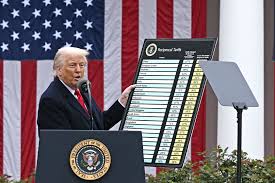Italy and Spain at risk austerity in climate-neutrality race, new study suggests

Rome: Italy and Spain could face greater levels of austerity as a consequence of public investments to cut Europe’s greenhouse gas emissions by 90% by 2040, a new study published today (September 16) suggests.
Think tank Agora Energiewende said the energy transition could entail 2% growth of Europe’s economy by 2040, linked to green investments. But after analysing the specific circumstances of France, Germany, Italy, Poland and Spain, it flagged specific challenges faced by the Mediterranean countries due to their high debt levels.
Despite the overall positive economic effect projected in the analysis, the heavily indebted countries are likely to see debt levels rise further unless governments implement additional austerity measures.

“EU member states should start to assess and address transition-related fiscal risks in debt sustainability analyses and national budget plans,” Agora suggested, noting EU governments cannot rely on carbon pricing revenues alone to finance their climate investment programmes.
Matthias Buck, Agora’s director, said that revenues from the sale of CO2 emissions allowances would start to decline in the mid-2030s as the fossil fuel tax base dwindles, underscoring the importance of EU climate funding in the next EU budget.
“EU co-financing of national climate investments, for example in buildings and clean transport, reduces the need for governments to choose between fiscal and environmental sustainability,” said Buck.
Investment of at least 462 billion euros, corresponding to 2.7% of EU economic output, will be needed every year throughout this decade, Agora estimates, echoing similarly large sums cited in the recent Draghi report on competitiveness and energy transition.
These investment needs will further increase to 3.3% or 564 billion euros in the 2030s before they taper again with the share of public investments corresponding to around 1.1% of EU GDP annually, according to the study.
Investing in areas such as clean tech, net-zero infrastructure and building renovations would strengthen EU manufacturing, create new jobs and foster economic convergence between Western and Eastern Europe, Agora noted, urging the bloc to ensure continued EU-level funding after 2026 when an EU programme to safeguard poorer citizens during the transition is set to end.
But the call for increased funding comes in the wake of probe by the European Court of Auditors (ECA), which last week denounced the misuse of green funds, saying that several EU countries had overestimated the cost of climate projects and miscounted actual sums spent.
Luke Haywood, policy manager for climate and energy at the EEB said if the European Commission does not assume its responsibility to ensure that resources disbursed are used for their stated purpose, they will continue to fund projects that are not in line with the aims of climate and nature policy.
“Monitoring is of critical importance, as many of the issues cited in this [ECA] report have arisen at least in part due to a lack of oversight at EU-level, and a lack of capacity to do so at the regional and local levels,” Haywood told Euronews, suggesting that resources to cover administrative capacity at the local levels, to ensure appropriate project oversight, should be included from project inception stage.





